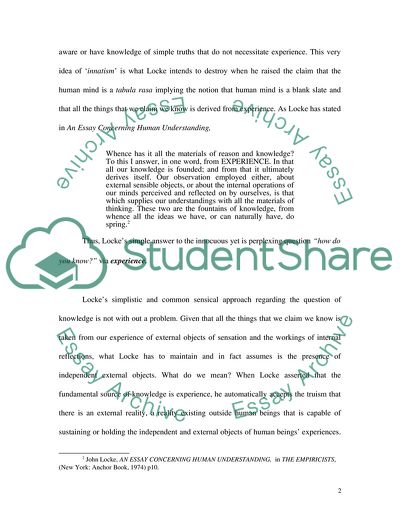Cite this document
(John Locke's Ideas on Primary and Secondary Qualities Assignment, n.d.)
John Locke's Ideas on Primary and Secondary Qualities Assignment. https://studentshare.org/philosophy/1703600-explain-lockes-arguments-un-support-of-the-resemblance-thesis-the-claim-that-while-our-ideas-of-the-secondary-qualities-of-objects-do-not-resemble-any-quality
John Locke's Ideas on Primary and Secondary Qualities Assignment. https://studentshare.org/philosophy/1703600-explain-lockes-arguments-un-support-of-the-resemblance-thesis-the-claim-that-while-our-ideas-of-the-secondary-qualities-of-objects-do-not-resemble-any-quality
(John Locke'S Ideas on Primary and Secondary Qualities Assignment)
John Locke'S Ideas on Primary and Secondary Qualities Assignment. https://studentshare.org/philosophy/1703600-explain-lockes-arguments-un-support-of-the-resemblance-thesis-the-claim-that-while-our-ideas-of-the-secondary-qualities-of-objects-do-not-resemble-any-quality.
John Locke'S Ideas on Primary and Secondary Qualities Assignment. https://studentshare.org/philosophy/1703600-explain-lockes-arguments-un-support-of-the-resemblance-thesis-the-claim-that-while-our-ideas-of-the-secondary-qualities-of-objects-do-not-resemble-any-quality.
“John Locke'S Ideas on Primary and Secondary Qualities Assignment”. https://studentshare.org/philosophy/1703600-explain-lockes-arguments-un-support-of-the-resemblance-thesis-the-claim-that-while-our-ideas-of-the-secondary-qualities-of-objects-do-not-resemble-any-quality.


